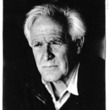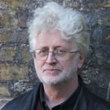Blood of Victory: A Novel
(Libby/OverDrive eBook)
Available Platforms
Description
More Details
Excerpt
Similar Series From Novelist
Similar Titles From NoveList
Similar Authors From NoveList
Published Reviews
Booklist Review
"Serebin was forty-two, this was his fifth war, he considered himself an expert in the matter of running, hiding, or not caring." But not expert enough. So it goes in the best WWII thrillers, where one's cynicism is never quite strong enough to repel either the seductions of idealism or the exigencies of the moment. It's the latter that drive the characters in Furst's thrillers, where the heroes are never idealists in cynics' clothing. Serebin, a writer from Odessa living in Paris in 1940, falls into espionage when he is approached by a British secret service agent. The plan is to sabotage the shipping of Romanian oil to Germany. A woman draws Serebin in, and what a woman she is: "Burgundian, dark and passionate. We love money and cook everything in butter. . . . And go home in the morning." It's to change her mind about the morning that Serebin goes to the Balkans, where all sorts of things go badly wrong. In some ways, this isn't Furst at his best: the plot huffs and puffs its way to a climax on the Danube, where Serebin and some Resistance cohorts slug it out with the Nazis in an overly stage-managed brawl. But Furst creates mood and place so superbly that we really don't care if the action is less than top drawer. It's that teeming Balkans setting we're after, that sense that behind every cup of espresso, there is a plot to overthrow some government or other--and behind every plot there is a woman dressed in silk waiting to be caressed. That's what turns even the best cynics into soldiers, and that's why a Furst novel hardly needs a plot at all. --Bill Ott
Publisher's Weekly Review
Critics who thought Furst's previous novel Kingdom of Shadows lacked a clearly linear plot will find much to praise him for in his toothsome new historical espionage thriller. The novel (named for the Romanian oil vital to the German war machine) describes a daring operation to disrupt the flow of that oil from the Ploesti fields in Romania to Germany by sinking a group of barges at a shallow point in the Danube in early 1941. The motley group attempting this maneuver barely holds together: its members include a sultry French aristocrat, hounded Russian Jews, even Serbian thugs. And while the tale features the same period details as its predecessor, and stretches from Istanbul to Bucharest with detours in Paris and London, it reaffirms the signature Slavic focus of the author's earlier books like Dark Star. This is literally personified in the novel's protagonist, the dogged Russian migr I.A. Serebin, who has to dodge every kind of secret police from the Gestapo to Stalin's NKVD (" `Why, Serge?' `Why not?' That was, Serebin thought, glib and ingenuous, but until a better two-word history of the USSR came along, it would do"). Diehard Furst fans will appreciate the recurrence of several secondary characters from Kingdom of Shadows (especially a certain heavyset Hungarian spymaster). But even newcomers will be ensnared by Furst's delicious recreations of a world sliding headlong into oblivion (wonderfully illustrated by Serebin having to drive a car off a cliff to escape with his life at the climax). Maps. Agent, Amanda Urban. (Sept. 3) Forecast: In a full-on campaign to make Furst a household name, Random House is reissuing his six earlier novels in trade paperback. Four are already out, and the last two (Dark Star and Night Soldiers) will be released at the same time as Blood of Victory. This, plus the attention Furst got for Kingdom of Shadows, could easily propel Blood of Victory onto bestseller lists. 5-city author tour. (c) Copyright PWxyz, LLC. All rights reserved
Library Journal Review
In Furst's latest bit of historical intrigue, Odessa-born writer Serebin front man for an migr organization based in Paris is persuaded by the British secret service to help stop the import of Romanian oil to Germany. (c) Copyright 2010. Library Journals LLC, a wholly owned subsidiary of Media Source, Inc. No redistribution permitted.
Kirkus Book Review
To the intense pleasure of his rabid admirers, the master of the dark-little-between-the-wars thriller returns with another very, very good one. Furst (Kingdom of Shadows, 2002, etc.) plots like a demon and writes better than an entire Iowa Workshop graduating class. Who else could toss off a joke about a Greta Garbo puppet drama in the middle of white-knuckled terror and make it work? The settings are Nazi-occupied Paris of late 1940 and the perpetually terrifying Romania, boiling in the fevers of civil war, fascist terror, and the Nazis next door. The reluctant, clever amateur (a Furst specialty) trying his hand at sabotage and spycraft is independently wealthy Russian emigre I.A. Serebin, a writer who has slipped away from Stalin's Great Terror in the nick of time and joined the raggedy remnants of the Russian intelligentsia in Paris. Serebin's adventures open with a luscious coupling aboard a steamer on the Black Sea. The fair white lady in Serebin's stateroom is Marie-Galante Labonniere, wife of the diplomat just down the passageway. In Istanbul, Serebin will join the Labonnieres on their yacht for an evening of excellent food and his first meeting with the man who will recruit the writer into the hair-raising business of messing with the current overlords of Europe. What can a writer do to complicate things for the current allies of his late homeland? Ultimately, he can have a go at stopping barge traffic on the Danube, thereby choking the supply of Ploesti crude to the Wehrmacht, but to do so he'll need to sidle through the Balkans from creepy capital to creepy capital in search of friends of liberty who aren't afraid of German terror. It would all be unrelieved nightmare were it not for Marie-Galante's slipping away from her duties as Madame Diplomat from time to time. Furst will never get a Pulitzer (he's much too readable), but he has got his own Absolut ad. Drink up. Author tour
Booklist Reviews
/*Starred Review*/ "Serebin was forty-two, this was his fifth war, he considered himself an expert in the matter of running, hiding, or not caring." But not expert enough. So it goes in the best WWII thrillers, where one's cynicism is never quite strong enough to repel either the seductions of idealism or the exigencies of the moment. It's the latter that drive the characters in Furst's thrillers, where the heroes are never idealists in cynics' clothing. Serebin, a writer from Odessa living in Paris in 1940, falls into espionage when he is approached by a British secret service agent. The plan is to sabotage the shipping of Romanian oil to Germany. A woman draws Serebin in, and what a woman she is: "Burgundian, dark and passionate. We love money and cook everything in butter. . . . And go home in the morning." It's to change her mind about the morning that Serebin goes to the Balkans, where all sorts of things go badly wrong. In some ways, this isn't Furst at his best: the plot huffs and puffs its way to a climax on the Danube, where Serebin and some Resistance cohorts slug it out with the Nazis in an overly stage-managed brawl. But Furst creates mood and place so superbly that we really don't care if the action is less than top drawer. It's that teeming Balkans setting we're after, that sense that behind every cup of espresso, there is a plot to overthrow some government or other--and behind every plot there is a woman dressed in silk waiting to be caressed. That's what turns even the best cynics into soldiers, and that's why a Furst novel hardly needs a plot at all. ((Reviewed August 2002)) Copyright 2002 Booklist Reviews
Library Journal Reviews
In his latest thriller, Furst repeats the success of works like Kingdom of Shadows, plumbing the same territory Europe, particularly France and Eastern Europe, in the tense era surrounding World War II with the same stylish and elliptical writing. Newly arrived in Istanbul to serve as executive secretary of the International Russian Union, Russian émigré journalist I.A. Serebin finds himself yanked into action by the British secret service, which is intent on stopping the shipment of Romanian oil to Germany. His contact proves to be the charming Marie-Galante, whom he has just bedded on the freighter that has brought him to his new home. As so Serebin weaves among Paris, Istanbul, and Bucharest in a desperate attempt to arrange a way to divert a barge load of the precious fuel the title's "blood of victory." Most of the time, Serebin is in the dark, and so is the reader a stylistic impulse that mimics the experience of World War II but can create some frustration and a sense of distance from the text. Nevertheless, Furst's spy work is some of the best around, and this is an important addition to most public libraries. [Previewed in Prepub Alert, LJ 6/1/02.] Barbara Hoffert, "Library Journal" Copyright 2002 Cahners Business Information.
Publishers Weekly Reviews
Critics who thought Furst's previous novel Kingdom of Shadows lacked a clearly linear plot will find much to praise him for in his toothsome new historical espionage thriller. The novel (named for the Romanian oil vital to the German war machine) describes a daring operation to disrupt the flow of that oil from the Ploesti fields in Romania to Germany by sinking a group of barges at a shallow point in the Danube in early 1941. The motley group attempting this maneuver barely holds together: its members include a sultry French aristocrat, hounded Russian Jews, even Serbian thugs. And while the tale features the same period details as its predecessor, and stretches from Istanbul to Bucharest with detours in Paris and London, it reaffirms the signature Slavic focus of the author's earlier books like Dark Star. This is literally personified in the novel's protagonist, the dogged Russian émigré I.A. Serebin, who has to dodge every kind of secret police from the Gestapo to Stalin's NKVD (" `Why, Serge?' `Why not?' That was, Serebin thought, glib and ingenuous, but until a better two-word history of the USSR came along, it would do"). Diehard Furst fans will appreciate the recurrence of several secondary characters from Kingdom of Shadows (especially a certain heavyset Hungarian spymaster). But even newcomers will be ensnared by Furst's delicious recreations of a world sliding headlong into oblivion (wonderfully illustrated by Serebin having to drive a car off a cliff to escape with his life at the climax). Maps. Agent, Amanda Urban. (Sept. 3) Forecast: In a full-on campaign to make Furst a household name, Random House is reissuing his six earlier novels in trade paperback. Four are already out, and the last two (Dark Star and Night Soldiers) will be released at the same time as Blood of Victory. This, plus the attention Furst got for Kingdom of Shadows, could easily propel Blood of Victory onto bestseller lists. 5-city author tour.
Reviews from GoodReads
Citations
Furst, A. (2002). Blood of Victory: A Novel . Random House Publishing Group.
Chicago / Turabian - Author Date Citation, 17th Edition (style guide)Furst, Alan. 2002. Blood of Victory: A Novel. Random House Publishing Group.
Chicago / Turabian - Humanities (Notes and Bibliography) Citation, 17th Edition (style guide)Furst, Alan. Blood of Victory: A Novel Random House Publishing Group, 2002.
Harvard Citation (style guide)Furst, A. (2002). Blood of victory: a novel. Random House Publishing Group.
MLA Citation, 9th Edition (style guide)Furst, Alan. Blood of Victory: A Novel Random House Publishing Group, 2002.
Copy Details
| Collection | Owned | Available | Number of Holds |
|---|---|---|---|
| Libby | 1 | 1 | 0 |


















































